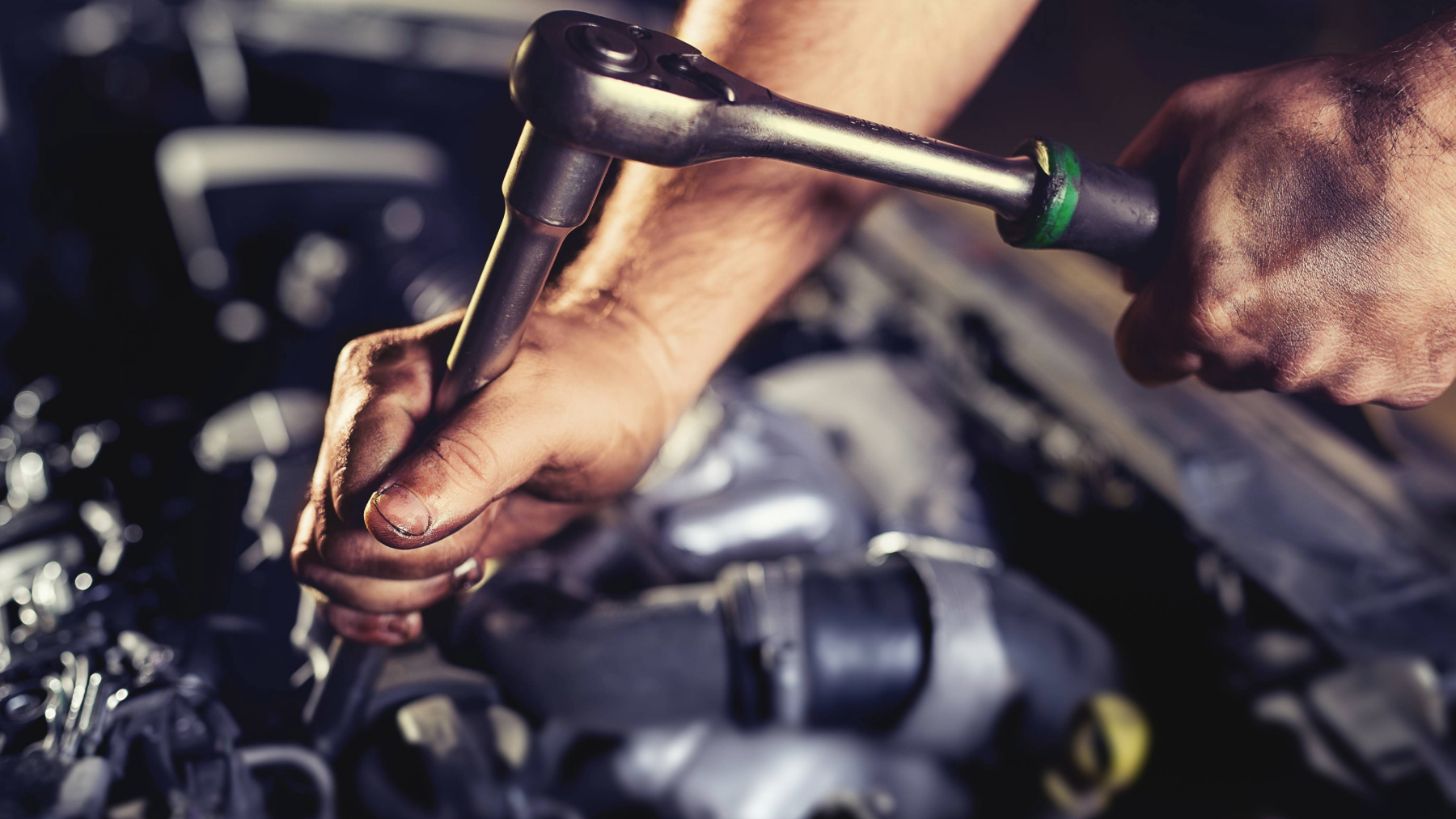Below, we explore the top tools every diesel technician should have, how versatile and digital tools are changing the game and what the future holds for diesel technology and repair.
Must-have tools for every diesel technician
When it comes to diesel repair, there are tools that you simply can’t do without. Here are three essentials recommended by CRST’s experts:
1. A toolkit of the basics
CRST Senior Maintenance Manager, Grant Thomas, emphasizes the value of a solid, basic toolkit that includes wrenches, screwdrivers and pliers. “A complete basic toolkit makes all the difference.”
“A complete basic toolkit makes all the difference.”
2. Volt ohm meter (multimeter)
In CRST Senior Maintenance Manager Jimmy Ogle’s mind, the multimeter is the No. 1 tool every technician should have.
“A volt ohm meter is the No. 1 tool to have, and you need to know how to use it,” Ogle says. He notes that while most technicians own one, not all know how to use it effectively.
This tool is indispensable for diagnosing electrical issues quickly and accurately, a common task in diesel repair. Whether you’re testing circuits, batteries or sensors, mastering this device can significantly enhance a mechanic’s troubleshooting skills.
“A volt ohm meter is the No. 1 tool to have, and you need to know how to use it.”
3. Impact tools (cordless or air)
Impact tools like wrenches are another must. Ogle insists they are non-negotiable for any diesel mechanic.
“You can’t do the job without impacts,” he says. “Cordless or air, they’re are essential.”
Cordless options, which offer added convenience and mobility, are increasingly popular with today’s techs. These tools save time while providing the power and precision necessary for heavy-duty repairs.
Why versatile tools are game-changers
Efficient technicians know that versatility in tools means streamlined workflows. Here are a few winning examples to add to your toolbox:
- Cordless screwdrivers – Perfect for addressing those hard-to-reach bolts in truck dashboards.
- Adjustable wrenches – A well-made adjustable wrench can replace a variety of fixed-size wrenches, giving you flexibility without weighing down your tool cart.
- Mobile toolboxes or roll carts – Ogle recommends keeping your essentials close by with a mobile roll cart. “It saves so much time walking back and forth across the shop.”
Versatile tools not only simplify tasks but also reduce the number of devices you need, keeping your workspace clutter-free.
How digital tools are transforming diesel repair
The traditional diesel technician’s toolkit is no longer just about wrenches and ratchets. With trucks becoming more sophisticated, software and diagnostic tools are now standard practice.
“Mechanics today need to be just as knowledgeable with laptops and software as they are with tools,” Ogle says.
From software to repair databases, today’s tools are centered around advanced electronics.
- Diagnostic laptops and scanners: Modern trucks come equipped with collision avoidance systems, lane-keeping features, and dozens of sensors. Tools like diagnostic laptops give technicians direct access to this data, making troubleshooting faster and more accurate.
- Sensor and ECM testers: Thanks to the rise of electronic control modules (ECMs), technicians now rely on these tools to assess the health of a truck’s ‘brain.’ Having the right digital tools ensures you stay ahead of the curve and remain indispensable in an increasingly tech-driven field.
That said, Thomas cautions against buying every tool available: instead, buy the tools you need, and be sure you know how to use them.
“If you need a tool more than once, or if you’re borrowing it regularly, then you probably need it. But be sure you know how to use it.”
“I’ve had mechanics with toolboxes sky high, but they don’t know how to use them, they’re just buying what they’re seeing,” he says. “If you need a tool more than once, or if you’re borrowing it regularly, then you probably need it. But be sure you know how to use it.”
Advice for diesel technicians
Advances in technology don’t just call for new or updated gear, but education to stay on top of how to use the technology properly. Both Ogle and Thomas say that’s the key to staying current.
“A mechanic with 50 years of experience might not know today’s technology. It’s about what you’ve done recently and your willingness to learn,” says Ogle.
“To succeed, you need to be open to learning and keeping up with the changes in the industry. Whether you’re a seasoned pro or an aspiring technician, adaptability and a commitment to growth will ensure you thrive in this rapidly evolving field.”
Thomas agrees, saying, “To succeed, you need to be open to learning and keeping up with the changes in the industry. Whether you’re a seasoned pro or an aspiring technician, adaptability and a commitment to growth will ensure you thrive in this rapidly evolving field.”
Final thoughts
Having the right diesel technician tools is fundamental to becoming an efficient and successful in the field. From mastering essentials like a volt ohm meter to staying on top of digital integrations, your toolkit is as important as your expertise. Investing in high-quality, versatile tools pays off in productivity, precision, and job satisfaction.
Looking to advance your career as a diesel technician? Join Team CRST and put your skills to work with the support and tools you need to thrive!





